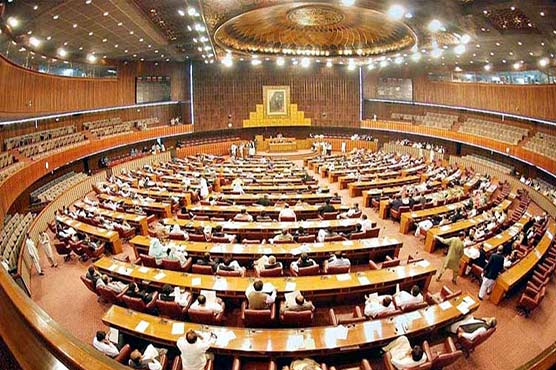The National Assembly (NA) has passed the Special Technology Zone Authority Act, 2021 to attract foreign direct investment (FDI) in the nation’s tech sector.
As reported by Profit by Pakistan Today, the document states that the lower house of parliament has approved the bill pertaining to the development of the scientific and technological ecosystem through the development of zones in the country.
The government, through this act, wants to provide institutional and legislative support for the national technology sector with internationally competitive and export-oriented structures and ecosystem in addition to developing collaboration between academia, research and technology industry.
The Act aims to help in creating jobs in the technology sector, and capitalizing on Pakistan’s youth dividend.
As per details in the document, the creation of the authority will also contribute to the development of an environment which would attract foreign direct investment, apart from improved quality of domestic technology products and services and fostering innovation.
According to the document, the government will establish a Special Technology Zones Authority (STZA) consisting of a chairperson and up to eight members.
The authority shall have exclusive power and authority for planning, policy formulation, execution, monitoring and evaluation of zones besides it can approve and notify zones in accordance with rules or regulations.
The authority may also identify and promote technology sector investment opportunities within and outside Pakistan.
Furthermore, it can develop and approve mechanisms and arrangements for management and operation of zones including the one-window facility for the provision of all services and utilities, physical as well as logistics infrastructure, human capital development and digital infrastructure for the zone.
It can also attract investment into zones including FDI, venture capital funds, public sector investments, public-private investments and private funds.
Documents state that the prime minister will be the president of the board of directors of authority and this board will consist of 25 ex-officio and independent members who would be appointed for four years by the federal government.
According to details, there would be ten-year income as well as sales tax, customs duty and property tax exemptions to zone developers and enterprises.
The Act is bound to play a significant role in further boosting the country’s tech sector and making it a space that favors continuous innovation and progression.





 Business is booming: Pakistan bags Top 10 ranking in business environment improvement
Business is booming: Pakistan bags Top 10 ranking in business environment improvement
Comments are closed.